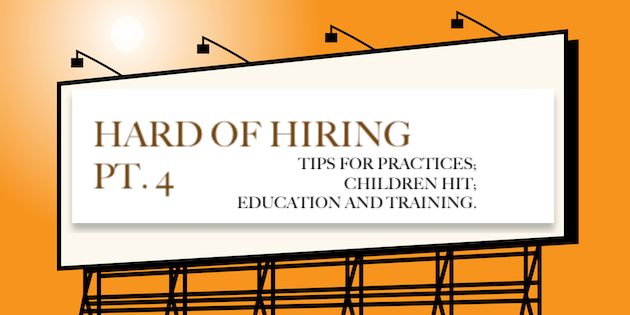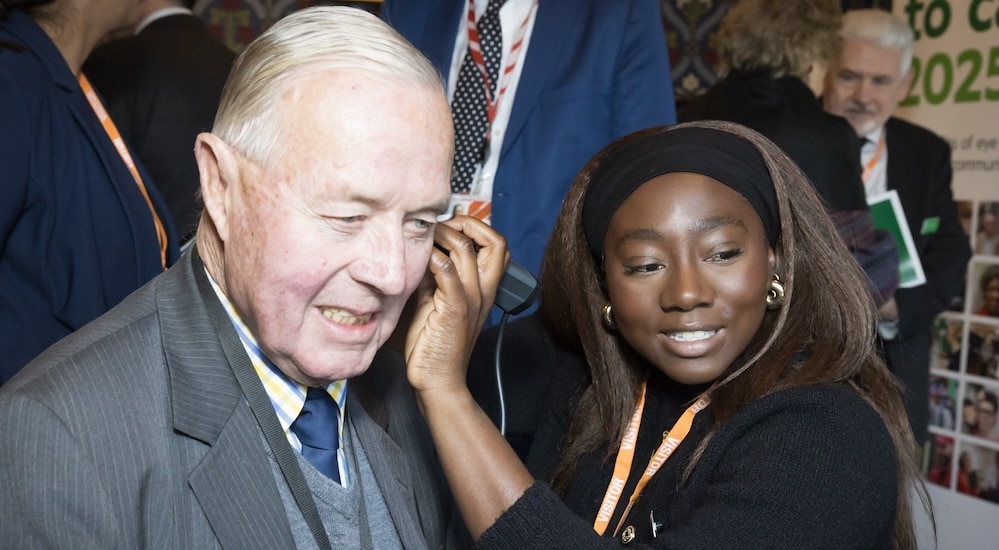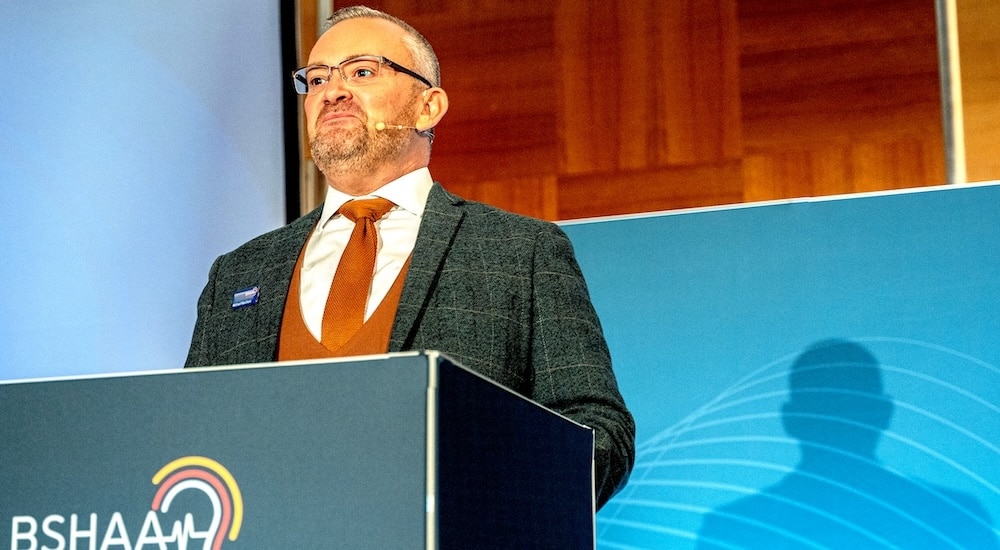UK audiology recruitment crisis Part Four - Industry advice from Starkey UK; opinion - NDCS; Interview with Claire Wilkes, Aston University
A severe problem in maintaining workforce numbers and quality is hitting the audiology profession and industry. This is a crisis, one likely to curb progress for years ahead. Audiology Worldnews sought the opinions of an industry expert, the UK's leading deaf children's charity, and a leading audiology education centre.

A view from the marketplace on how practices can handle the fallout from the hiring crisis.

PW Tim Clark, Starkey: Employers should “walk the talk”.
Tim Clark, Managing Director, Starkey UK & Ireland, stresses the need for employers to offer prospects a solid vision to share, and a caring workplace:
It is fair to say that the Hearing Aid industry managed through the pandemic better than most. However, a subsequent effect of the lockdowns, and thus a reduction in audiology courses completed has left a shortage of newly qualified hearing professionals.
Similar to other professionally qualified industries this under-supply has led to a marked increase in terms of salary expectations on the part of the dispenser. Both recruitment and retention of high performing staff have been cited as key challenges facing hearing aid retailers. If you then add in the macroeconomic uncertainty, this further worsens the dilemma, as people tend to stay in their existing roles based upon fear of the unknown.
Training is essential, but how? What training?
With that in mind, never has it been more important for independent businesses to market themselves as the caring family-run employer, and of course to “walk the talk”, no different to how you have marketed yourselves to attract and retain hearing aid wearers. Does your marketing story make people feel like they would love to work with you? In the same way you are appealing to hearing aid wearers to come to your practice – through your website, social media, etc. – are you doing the same for prospective employees? It has been widely acknowledged that the younger generations who are coming up through the ranks are no longer only satisfied with a great remuneration and holiday package but also need to feel aligned to the vision and purpose of the employer.
As always, the solutions are dependent upon the business owner’s strategic goals. The first is simple: one can pay the higher salaries based on regional market rates and look to offset the higher cost elsewhere in the business, or perhaps consider changing from the traditional “low fixed + high variable” remuneration package in favour of a “higher fixed + lower variable” method. This would give some certainty for the business owner when it comes to budgeting the running costs, along with offering the employee some comfort over their wages, which in turn could be used when attracting new staff. The down side is the business owner carries the risk, hence every business case is different.
Another question to ask yourself is around the “train your own vs recruit fully trained”. This method has proven to be very successful for a number of hearing care businesses who have enrolled their reception / admin staff on to an HCA course, followed by a wax removal course, with a further view to taking the full RHAD course, thus allowing you to train the new member to fit in with your culture. The benefit here is that the new recruit is not pre-conditioned to fully qualified HAD packages, whilst creating a degree of loyalty towards the owner who puts trust in the candidate to get them through the qualification. The downside is it takes time, and even at an entry level reliable staff are not always guaranteed.
The key success factor will hinge upon your agility to tailor your offering depending on what the market requires in your area
In paediatric audiology, the hiring crisis can cause delays that have a “lifetime’s impact” on children with hearing loss, warns the NDCS.

Beccy Forrow, Deputy Director of Campaigning and Advocacy at the National Deaf Children’s Society:
“There’s a shortage of experienced paediatric audiologists in the UK. Vacant positions remain unfilled and existing staff are cutting their hours or retiring. This is having a serious impact on deaf children. The shortage of paediatric audiologists is leading to deaf babies and children waiting too long for initial hearing tests and the fitting of hearing aids. Any delay at this crucial stage could lead to a lifetime’s impact on a deaf child’s language development and educational attainment.”
A hiring crisis that feeds back negatively into education
Down on the ground in training audiologists, Claire Wilkes, Programme Director BSc Healthcare Science Audiology at Aston University’s College of Health and Life Sciences, joins the debate.

Aston University A moment during an audiology class at Aston University.
Audiology Worldnews (AWN): In relation to arguments that the recruitment crisis in audiology is as much about quality of candidates as number, what are Aston teachers and careers advisers seeing? Are there signs of difficulties at the educational stages?
Claire Wilkes: From the work I do with stakeholders, I can confirm that they are reporting that they feel there is a workforce shortage. A lot of clinics are currently understaffed and trying to recruit locums to support the clinics. The impact of this on universities is that clinics are not in a position to offer clinical placements to students as they feel they do not have the staff or the time to support them. Audiology at Aston University has seen an increase in students who want to enrol onto the course, and for the last three years we have actually exceeded our targets for recruitment/enrolment on our BSc Healthcare Science Audiology Degree. COVID has had an impact on the students coming through, not in terms of educational quality but in their ability to want to work in groups (they feel much more comfortable working on their own). We have also noticed an increase in the amount of students experiencing anxiety.
AWN: Are future audiology staff in the UK being underprepared nationally? And how do audiology courses fare against other healthcare careers in terms of attracting talent?
CW: I think this is more about the NHS not understanding how a BSc Degree works within a university setting. I also feel the NHS’s expectations need adjusting. The comment I repeatedly hear is that they want to employ experienced clinicians straight from university. The courses at university can enable competent clinicians but not experienced clinicians. The BSc has never been able to enable an experienced clinician. Realistically this can only happen once a competent clinician starts working.
AWN: Is audiology an attractive enough profession in today’s jobs marketplace?
CW: There are a lot of people, graduates, and NHS clinicians choosing to work in the independent sector. I have heard feedback that with the cost of living, the salaries and benefits being offered by the independent sector are more attractive than the NHS. They also report that the opportunity for training/conference attendance and promotion is more readily attainable in the independent sector. Person centred care is a hot topic and reports are that due to time restraints and targets it is more challenging to be able to deliver person centred care in the NHS, and future clinicians see the value in person centred care and are also turning to the independent sector as there is a little more freedom with timings of appointments.
AWN: How important is the input to training and career steps from the manufacturers of hearing devices and the retail sector? Are companies doing the right things to find top talent for audiology? What more can they do?
CW: It is Aston’s experience that manufacturers and the retail sector are being very supportive to our courses and our students. The retail sector are trying to support our students with placements. Manufacturers are giving talks and demos to the students. They are also sponsoring attendance to conference and graduation prizes where possible.
Aston University Audiology staff all work in some capacity with different professional bodies and associations. We are part of working groups and in regular communication offering feedback on new guidelines and changes in trainings. At Aston University, representatives have also been co-authors on changes in curriculum as governed by the National School of Healthcare Science, alongside representatives from other HEIs. These continued working relationships are essential for our courses and the future of our profession.
AWN: How much dialogue on education is there between Aston and UK audiology’s professional associations? Are there ongoing conversations with any groups, or any schemes running that involve professional associations?
CW: Aston University Audiology staff all work in some capacity with different professional bodies and associations. We are part of working groups and in regular communication offering feedback on new guidelines and changes in trainings. At Aston University, representatives have also been co-authors on changes in to curriculum as governed by the National School of Healthcare Science, alongside representatives from other HEIs. These continued working relationships are essential for our courses and the future of our profession.
AWN: Are Aston audiology courses offering audiology students any knowledge from other areas they are later going to have to deal with, such as neuroscience, public health, primary health, geriatrics, and paediatrics?
CW: Absolutely. This is actually a requirement of the curriculum. We are a diverse team at Aston and have specialists in these areas who teach these topics but also run a neurophysiology programme. Aston University has portfolio, of course, and programmes spanning from CPD to PHD, this means that we can enable people to take their career to where they want them to be.
AWN: What more can the government and the NHS do to help universities provide optimum education and graduate career prospects for students of hearing health?
CW: Make things equal. Audiology students do not get the same funding or bursary opportunities that other health students get. This makes it incredibly challenging for students. More so when having to go to external clinics for training. Due to the lack of departments being able to offer places (as per comments above), students have to travel all over the country to where we can find a place for them. All of this at their own expense. Universities do see students have to withdraw because of this. The government has now also introduced apprenticeships. These are a double edged sword as it does give clinics the opportunity to grow their working team but the downside is that departments who choose to offer an apprentice position then can no longer support a clinical placement, which adds to the challenges we already face. One solution could be for the government to do what it has done in previous years and pay the students to train on these courses. Another option could be to support HEIs moving to preceptorship courses and supporting the NHS to set up a national preceptorship programme. This would mean that there would be more clinics able to offer preceptorship places. If the graduate could continue to grow in confidence and experience whilst becoming an integral part of the team, this would hopefully lead to the person wanting to stay in the departments and continue working for them.
——————————————————-
Read Part One – Facts and Figures of this series, Hard for Hiring.
Read Part Two – BAA Interview of Hard for Hiring.
Read Part Three of Hard for Hiring.
Source: Audio Infos UK issue 152 January-February 2023
 Sign in
Sign in

